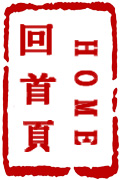
Critical Theory
批判理论/Pi1 Pan4 Li3 Lun4
批判理論
CHEARS: False
EARS: True
CMT: False
EARS2 Encyclopedia: False
CHEARS:
EARS: Machine Translation / MySQL (beta) at CHEARSdotinfo.co.uk
批判理论在哲学和社会科学的历史中有狭义和广义之分。狭义上的“批判理论”由数代德国哲学家和西欧遵从马克思主义传统的社会理论学家提出,即众所周知的法兰克福学派。这些理论家认为,一个“批判”的理论,可能要依其特别的实践目的而与“传统”理论相区别:批判理论一定程度上寻求人类解放,“将人类从奴役他们的环境中解放出来”(霍克海默,1982,244)。因为此类理论致力于解释和阐述奴役人类的环境,所以人们将很多广义上的“批判理论”进行发展。现代社会里,大量社会运动确立了人类多变的统治范围,那些理论也在社会运动的伴随下而萌生。但无论从广义还是狭义上讲,批判理论都为社会探究奠定了详尽而准确的基础,而社会探究的目的则在于以各种形式瓦解专制和提倡自由。
狭义上的批判理论涉及很多不同的方面,并且自1929年社会研究所(the Institute for Social Research)创立至今,历经若干截然不同的历史阶段。其特殊性在于此理论是一个拓展到种族学、政治学及历史学的哲学研究途径,在社会科学史中这种特殊性最为显著。批判理论学家长期以来都在寻求将他们自己的研究目标、研究方法、理论和阐述的形式与自然科学和社会科学的规范化理解相区别。然而,他们认为社会探究应当糅合哲学和社会科学,而不是将其分离:解释与领会,内部结构与相互作用,规律与标准。批判理论学家认为,这样的途径可以使研究具有特别的精神意义(而不是一种工具)。他们不仅是在寻求提供实现个别目标的方法,而是(正如上面所提到的霍克海默的著名论断)力图在环境的统治和压迫下求得“人类解放”。没有哲学和社会科学的多学科研究,这个需要规范的任务就无法实现(霍克海默,1993)。通常人们所提到的批判理论都会涉及法兰克福学派,这一学派始于霍克海默和阿多诺,马尔库塞和哈贝马斯则继续将其发展。任何拥有类似实践目的的哲学研究方法都可称为“批判理论”,包括女权主义、批判种族主义,以及某些形式的后殖民地批判主义。后来,批判理论的特指意义均为法兰克福学派。这个术语所有其他用法都是运用其广义,因此不具备特指的含义。当单独使用这个术语时,“批判理论”并非有所特指,甚至在法兰克福学派成员在其批判理论全面研究的工程中,将该理论进行发展时亦是如此。
霍克海默:《批判理论》纽约西伯利出版社,1982。
霍克海默:《哲学与社会科学》剑桥麻省理工大学出版社,1993 资料来源:斯坦福哲学大百科
Critical Theory has a narrow and a broad meaning in philosophy and in the history of the social sciences. "Critical Theory" in the narrow sense designates several generations of German philosophers and social theorists in the Western European Marxist tradition known as the Frankfurt School. According to these theorists, a "critical" theory may be distinguished from a "traditional" theory according to a specific practical purpose : a theory is critical to the extent that it seeks human emancipation, "to liberate human beings from the circumstances that enslave them" (Horkheimer 1982, 244). Because such theories aim to explain and transform all the circumstances that enslave human beings, many "critical theories" in the broader sense have been developed. They have emerged in connection with the many social movements that identify varied dimensions of the domination of human beings in modern societies. In both the broad and the narrow senses, however, a critical theory provides the descriptive and normative bases for social inquiry aimed at decreasing domination and increasing freedom in all their forms.
Critical Theory in the narrow sense has had many different aspects and quite distinct historical phases that cross several generations from the founding of the Institute for Social Research in 1929 to the present. Its distinctiveness as a philosophical approach that extends to ethics, political philosophy, and the philosophy of history is most apparent when considered in light of the history of the philosophy of the social sciences. Critical Theorists have long sought to distinguish their aims, methods, theories, and forms of explanation from standard understandings in both the natural and the social sciences. Instead, they have claimed that social inquiry ought to combine rather than separate the poles of philosophy and the social sciences : explanation and understanding, structure and agency, regularity and normativity. Such an approach, Critical Theorists argue, permits their enterprise to be practical in a distinctively moral (rather than instrumental) sense. They do not merely seek to provide the means to achieve some independent goal, but rather (as in Horkheimer's famous definition mentioned above) seek "human emancipation" in circumstances of domination and oppression. This normative task cannot be accomplished apart from the interplay between philosophy and social science through interdisciplinary empirical social research (Horkheimer 1993). While Critical Theory is often thought of narrowly as referring to the Frankfurt School that begins with Horkheimer and Adorno and stretches to Marcuse and Habermas, any philosophical approach with similar practical aims could be called a "critical theory," including feminism, critical race theory, and some forms of post-colonial criticism. In the following, Critical Theory when capitalized refers only to the Frankfurt School. All other uses of the term are meant in the broader sense and thus not capitalized. When used in the singular, "a critical theory" is not capitalized, even when the theory is developed by members of the Frankfurt School in the context of their overall project of Critical Theory.
EARS 2: MT / MySQL (beta) at CHEARSdotinfo.co.uk
参看其它/See Also
术语翻译/Terms Translator
术语校对/Terms Proofreader
术语顾问/Consultant to terminology
参考文献/Bibliography
讲座/Lecture
评论/Comments
发表评论(预先注册)/Add comment on this term(members ONLY)